Problem-Solving Skills Matching Worksheets for Ages 5-6
8 filtered results
-
From - To
Enhance your child's problem-solving skills with our engaging Problem-Solving Skills Matching Worksheets designed for ages 5-6. These fun and interactive worksheets encourage young learners to identify, compare, and match various scenarios, fostering critical thinking and cognitive development. Each activity is carefully crafted to stimulate curiosity and enhance understanding through practical, hands-on learning experiences. Perfect for home or classroom use, these worksheets help children develop essential skills essential for future math and everyday problem-solving. Unlock your child's potential and watch as they gain confidence and improve their analytical abilities. Explore our collection today for a fun learning adventure!
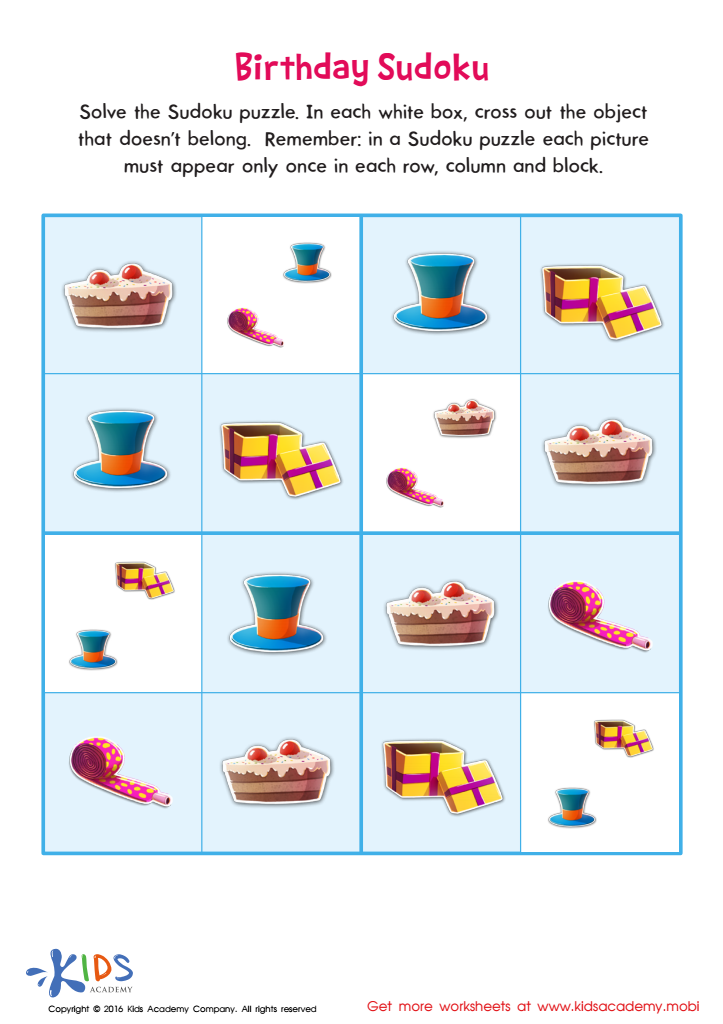

Birthday Sudoku Sorting Worksheet
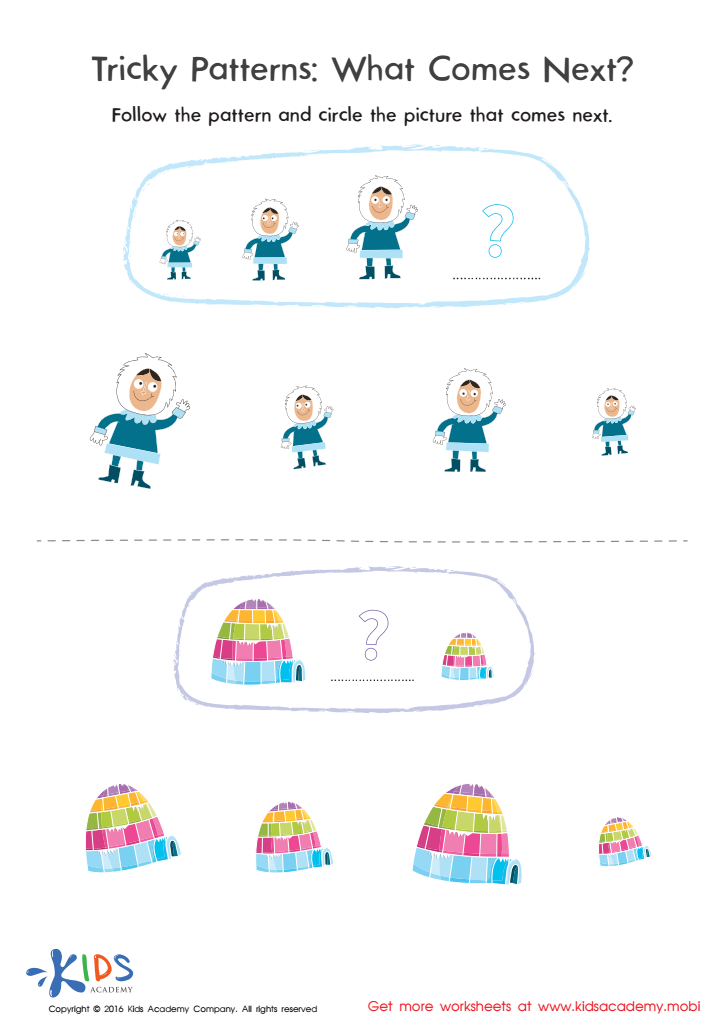

Tricky Patterns Size Worksheet


Make the Same Pattern Worksheet
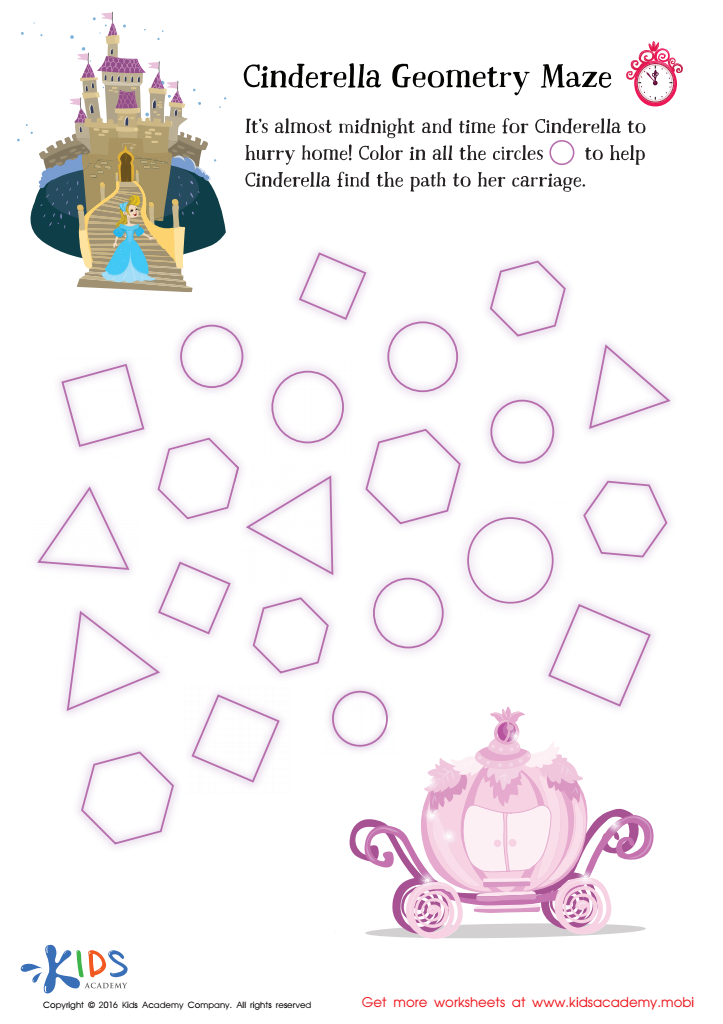

Cinderella Geometry Maze Worksheet


Logic Game Sorting Worksheet
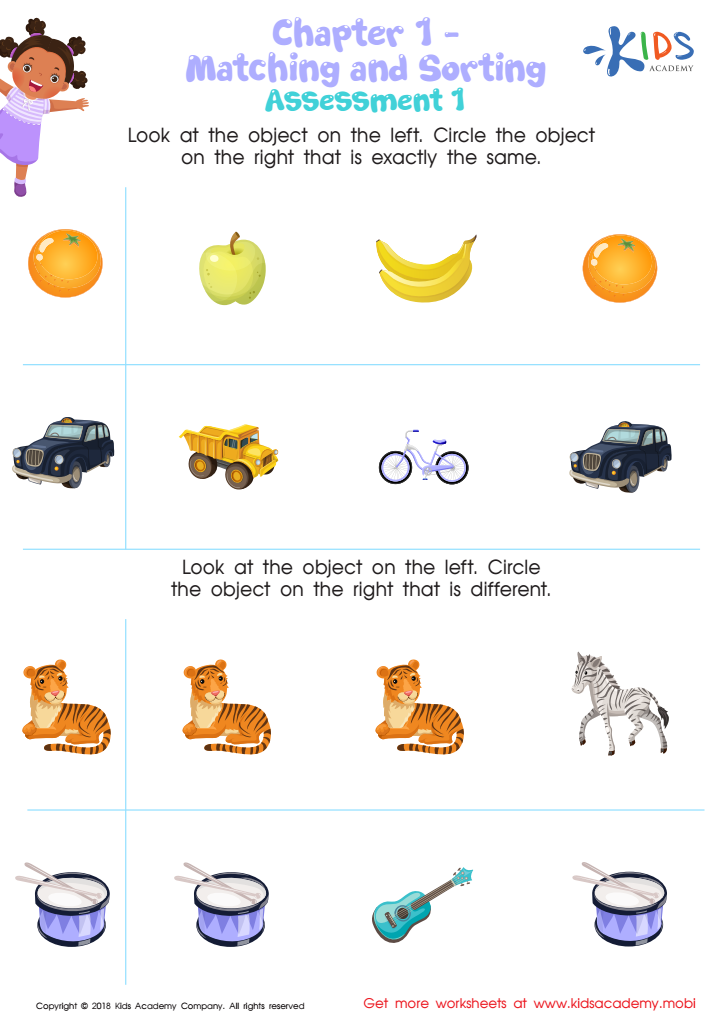

Matching and Sorting for Preschool: Assessment 1 Worksheet
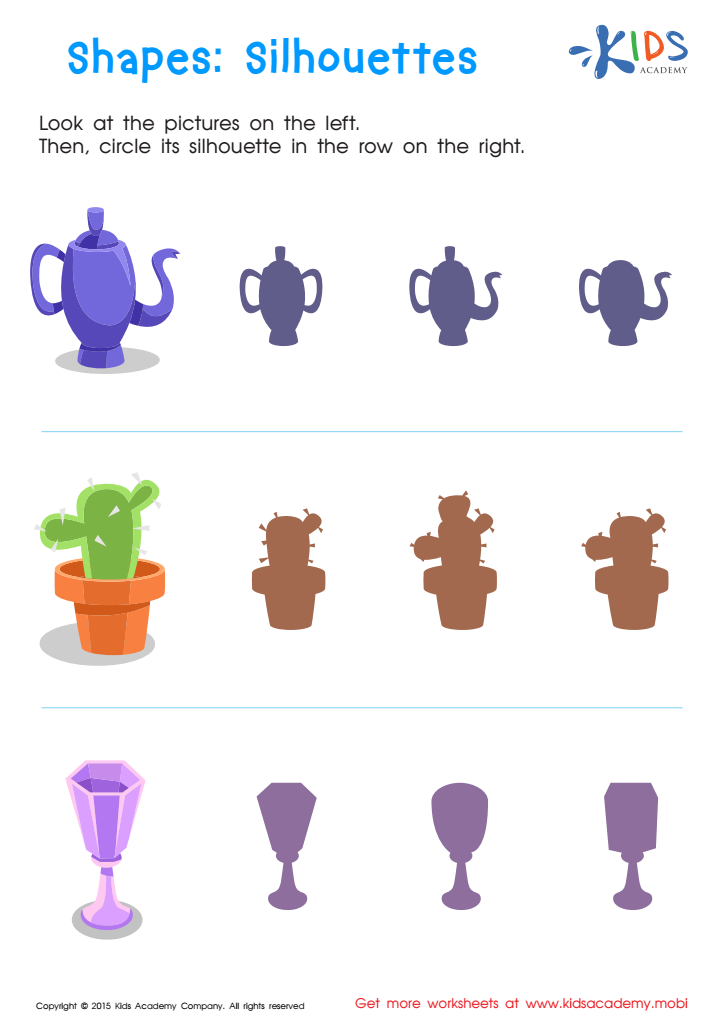

Silhouettes – Shapes Worksheet
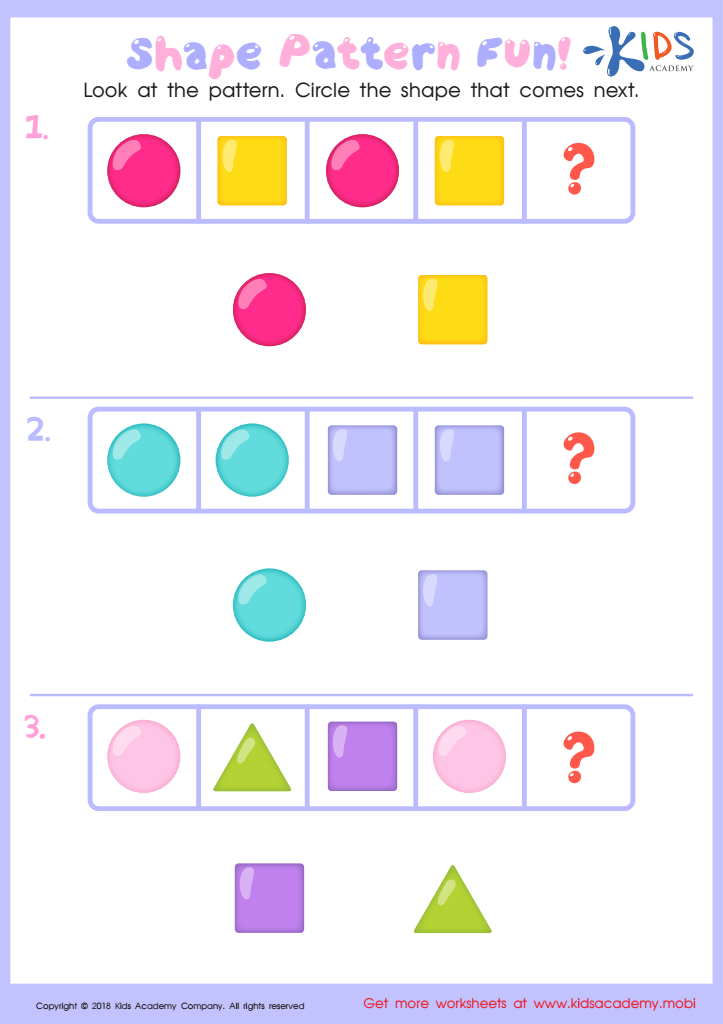

Shape Pattern Fun Worksheet
Problem-solving skills are fundamental for young children, particularly those aged 5-6, as this age marks a critical period for cognitive development. Parents and teachers should closely monitor problem-solving skills matching during this stage because these skills lay the groundwork for future learning and achievement. At this age, children begin to explore their ability to think critically, analyze situations, and devise solutions independently, contributing to their overall mental and emotional growth.
Fostering these skills encourages creativity and perseverance, essential traits for overcoming challenges in later academic and life scenarios. Matching problem-solving skills to a child's developmental level ensures that they are adequately challenged, which keeps them engaged and motivated. If tasks are too easy, children may become bored; if too difficult, they may feel frustration and disengagement.
Moreover, good problem-solving abilities enhance collaboration and social interactions, as children often work with peers during activities. This crux of teamwork helps build communication skills and empathy. By prioritizing and nurturing problem-solving skills, parents and teachers empower children to navigate their world confidently, fostering lifelong learners capable of thinking critically and adapting to change. In essence, investing in these skills at an early age is instrumental to holistic development, paving the way for academic success and resilient citizenship.

 Assign to My Students
Assign to My Students
















